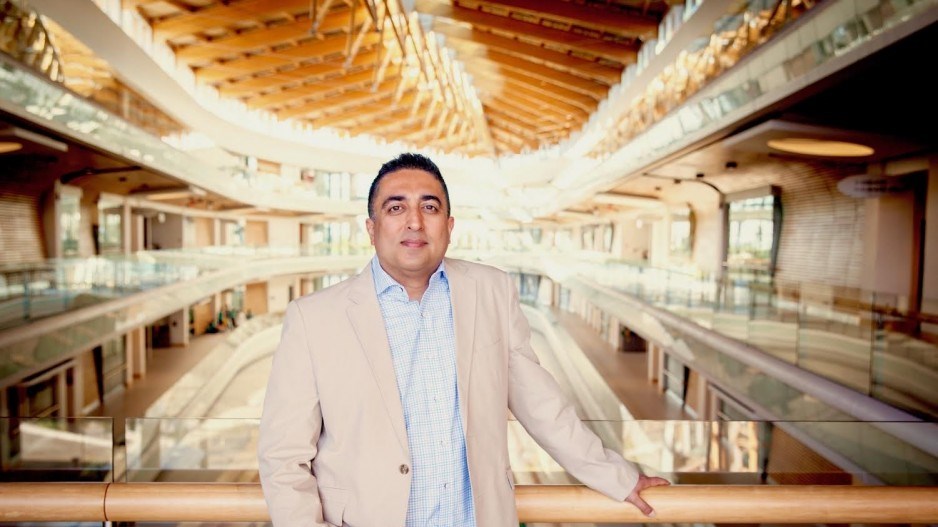Leadership turmoil at San Francisco-based OpenAI is stoking fears in executives at B.C.-based start-up artificial intelligence (AI) companies that use OpenAI technology as part of their product offerings.
Workforce Wellness, for example, is a Vancouver-based software company that offers clients technology to help reduce staff burnout and help retain employees while upping their performance through AI innovations.
"Our platform has an AI based coach for employees," CEO Ashish Anand told BIV this afternoon. "Employees can essentially access an anytime coach that gets to know them, does assessments and builds a roadmap for them. It encourages them and guides them."
The seven-employee, three-and-a-half-year-old Workforce Wellness pays OpenAI to access its technology to help power Workforce Wellness products, Anand said.
Uncertainty at OpenAI, which has followed the company's board on Friday firing CEO and co-founder Sam Altman, prompting president Greg Brockman to quit, has prompted Anand to start investigating whether to invest to build his own AI technology to power his company's products.
"If they go down, our service basically stops working," he said. "We'll lose clients."
Anand is not the only executive at a small B.C. AI company to fear business fallout from disarray at OpenAI.
"Dozens and dozens" of B.C. companies could also be impacted if uncertainty spirals out of control at OpenAI, Rob Goehring, CEO at Wisr AI and the founding chair of BC Tech’s AI C-Council told BIV this afternoon.
The New York Times this afternoon reported that more than 700 of OpenAI's 770 employees had signed a letter saying that they may leave the company for Microsoft Corp. (Nasdaq:MSFT) unless all OpenAI board members resign, and Altman is reinstated as CEO.
A staff exodus could put OpenAI technology at risk of being hacked, Goehring said.
"I don't think the technology goes away," Goehring said. "I can imagine a scenario where Microsoft ends up owning it all – either through a fire sale or through some new governance approach."
He noted that Microsoft owns almost half of OpenAI, and OpenAI's technology uses Microsoft's cloud platform Azure. Despite this, if almost all of the employees at OpenAI quit, the risk rises that hackers will recognize vulnerabilities in OpenAI technology code and know that the company does not have the human resources to fix the glitches.
Altman today wrote on X (formerly Twitter) that the top priority for himself and Microsoft CEO Satya Nadella is to ensure that OpenAI continues to thrive.
“We are committed to fully providing continuity of operations to our partners and customers,” he wrote.




